This program is designed for the student who seeks to increase knowledge related to the Paramedic field. The EMT and Paramedic programs are part of the EMS Degree curriculum. In conjunction with EMT & Paramedic programming, the program contains the General Education courses needed for students to receive their Associate Degree in Science credential in Emergency Medical Services.
Program Details
Program Hours:
60 SEMESTER CREDITS
Program Length:
52 Weeks
Program Award:
Degree
Take the Next Step in Your Career
Program Summary
Admission Requirements
In order to be eligible for registration, students must be at least 18 years old and possess all of the following:
- Valid Florida Driver’s License or Valid Florida State ID
- State of Florida Paramedic license.
- Official Transcripts of Paramedic Program completion.

Program Objectives
Upon successful completion of this program the student shall be able to:
- Recognize the nature of a patient’s illness or the mechanism of injury, evaluate its seriousness, and determine the need for care, assistance, and mode of transportation.
- Give the appropriate emergency treatment necessary to stabilize the patient’s condition.
- Evaluate the patient’s response to treatment and determine whether further interventions are needed.
- Use proper lifting techniques to move the patient in order to minimize patient discomfort and injury.
- Transfer the patient safely to the appropriate medical facility and give an accurate account of patient’s ailment and status to the health professional that is taking over the patient care.
- Obtain a relevant history of the patient’s illness or injury, perform a pertinent physical examination, reach an appropriate conclusion regarding the implications of the clinical findings for appropriate treatment on the scene.
- Manage both trauma and medical patients properly in the pre-hospital setting.
- Give accurate verbal and written reports, communicate via emergency radio, know the standard operating procedures for emergency vehicle and medical equipment, and the ability to properly control the emergency scene and perform basic extrication.
- Provide advance life support as necessary.
- Demonstrate the ability to comprehend, apply, analyze, and evaluate information relevant to their role as entry level EMT-Paramedic.
- Demonstrate technical proficiency in all skills necessary to fulfill the role of entry level EMT-paramedic.
- Demonstrate personal behavior that is consistent with the expectations of professional employers within their prospective field of certification.
- Must be able to perform mathematical operations.
- Demonstrate strong written skills.
- Explain psychological behaviors.
- Communicate cultural norms through historic context.
- Explain the structure and function of the human body systems.

| Quick Facts: EMTs and Paramedics | |
|---|---|
| $35,400 per year $17.02 per hour |
|
| Postsecondary nondegree award | |
| None | |
| None | |
| 265,200 | |
| 6% (Faster than average) | |
| 17,000 | |
U.S. BUREAU OF LABOR STATISTICS
Curriculum
Accreditation & Membership




Curriculum
ENC 101 / College Composition I - 3 Semester Credit hours
Students in this course will review and study grammatical context, sentence structure, write term papers and reports and general rules of business correspondence.
ENC 102 / College Composition II - 3 Semester Credit hours
Students in this course will continue to review and study grammatical context, sentence structure, write term papers and reports and general rules of business correspondence. In this section students will study contemporary writings and demonstrate reading comprehension and critical thinking on subject matter.
SPC 106 / Public Speaking - 3 Semester Credit hours
Students in this course will be able to demonstrate knowledge of public speaking, speech delivery concepts and analyze the delivery of other students’ speeches. Students will perform audience analysis tasks and prepare speech topics and outlines. Learners will use supporting materials and presentation aids in speech preparation to prepare each of the components of a speech.
PSY 112 / Psychology - 3 Semester Credit hours
Upon completion of this course students will have developed a basic understanding of psychology, its origins and its practical applications in the professional world. Students will gain skills and knowledge enhancing their ability to effectively communicate ideas and identify behaviors and information effectively.
MAC 105 / College Algebra - 3 Semester Credit hours
Students in this course will explore exponential mathematics and college algebra through an examination of practical applications. Students will calculate algebraic problems with linear equations, exponents, polynomials, factors, and rational expressions. Student will solve problems using graphs, slopes, inequalities, linear equations, roots, radicals and quadratic equations.
PM-100 / Paramedic - Lecture/Lab I - 12 Semester Credit hours*
This course includes: Introduction and Medical Terminology (includes 4 hours of Florida AIDS/HIV Education), Anatomy & Physiology, Patient Assessment, Fluids & Shock, Pharmacology, Respiratory and Airway, Cardiology (includes Advanced Cardiac Life Support certification).
PM-101 / Paramedic - Lecture/Lab II - 20.5 Semester Credit hours*
This course includes: Trauma (includes Pre-Hospital Trauma Life Support), Medical Emergencies, Obstetrics & Gynecology, Behavioral Emergencies, Pediatrics (includes Pediatric Advanced Life Support certification), Emergency Scene Operation and Structural Review.
PM-102 / Paramedic - Hospital Clinical - 4 Semester Credit hours*
Students complete supervised hospital clinical in the Emergency Department, Operating Room, Labor and Birth, Medical Examiners, Trauma Center, Intensive Care, Pediatrics, and the Psychiatric Ward. This course is designed to allow the student to practice skills learned in the classroom on actual patients.
PM-103 / Paramedic - Ambulance/Rescue Field Experience - 8.5 Semester Credit hours*
Students complete a supervised field experience and are assigned to a local fire department rescue squads, ambulances and fire apparatus. This course is designed to orientate the student with the roles of the Paramedic in the field setting. The rescue/ambulance rotation allows the student to perform skills learned in the classroom on actual patients.
* Each clock hour is defined as 50 minutes of classroom session in any field, lab, lecture or clinical setting. A semester credit hour is defined as 15 clock hours of lecture (1 semester credit), 30 clock hours of lab (1 semester credit) and 45 clock hours of externship (1 semester credit).

American Medical Academy
12215 SW 112 Street
Miami, Florida 33186
Phone: (305) 271-6555
Email: info@ama.edu
